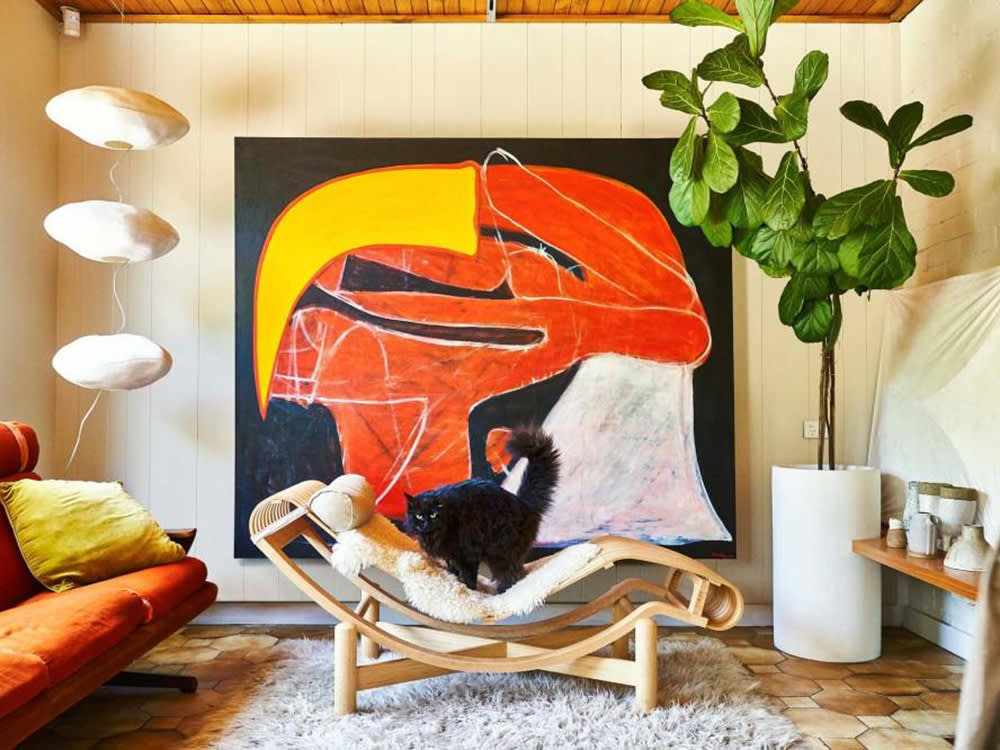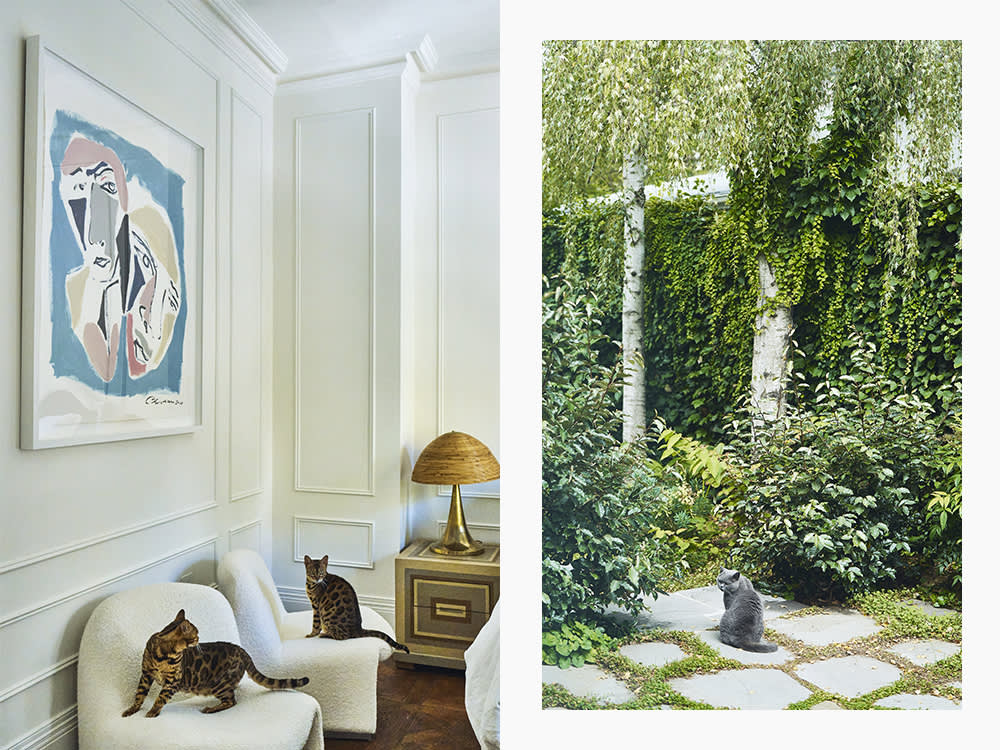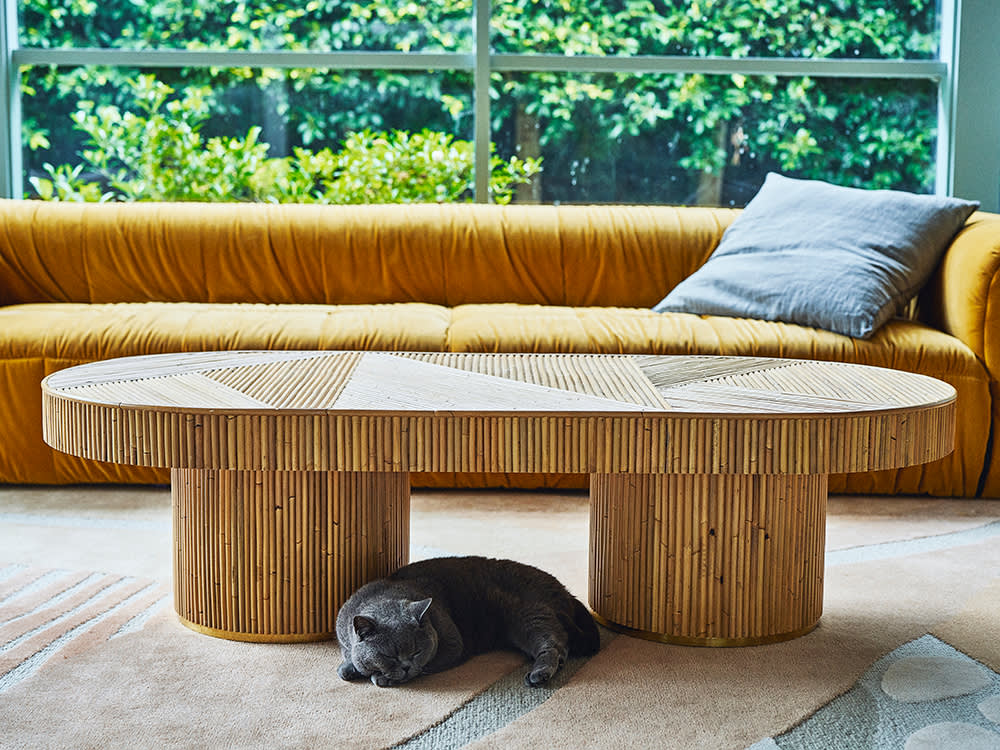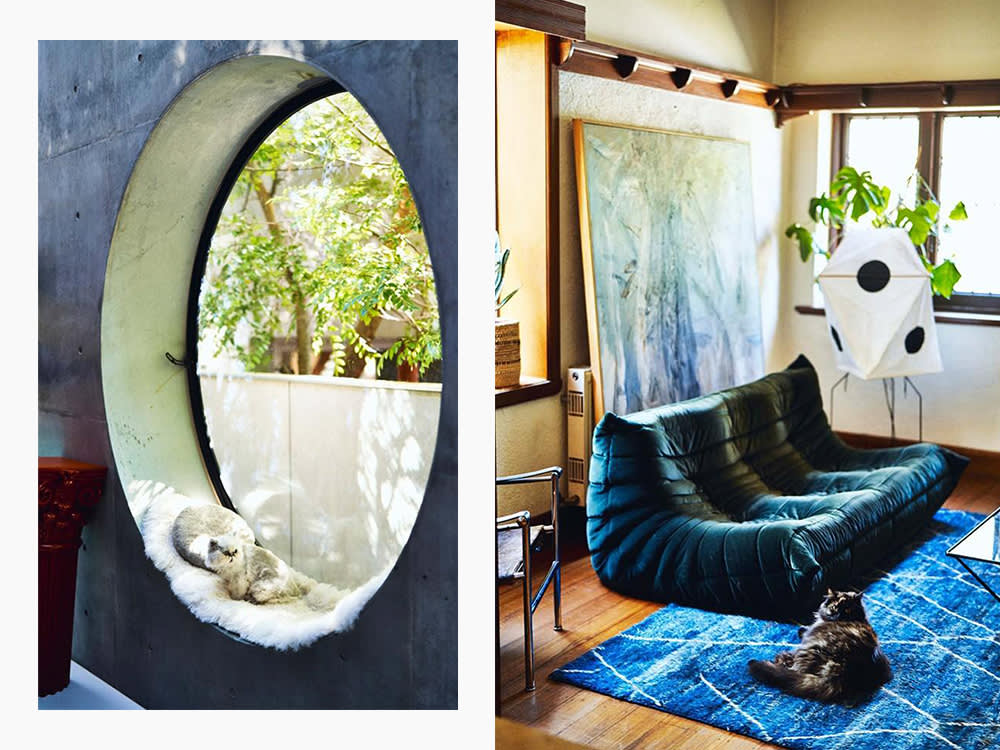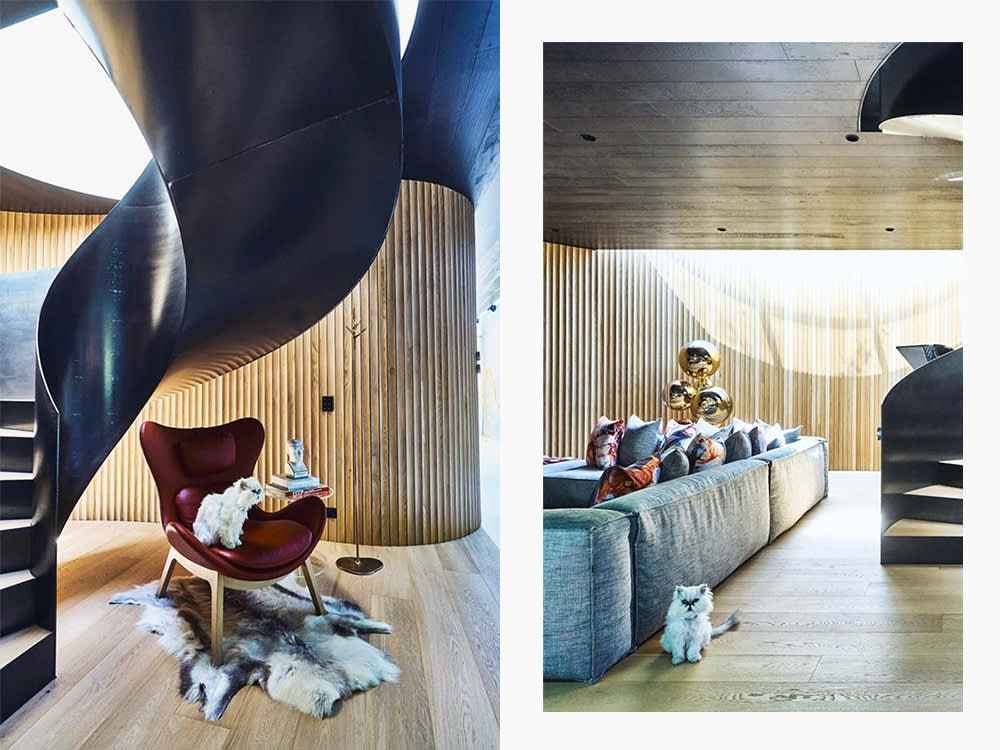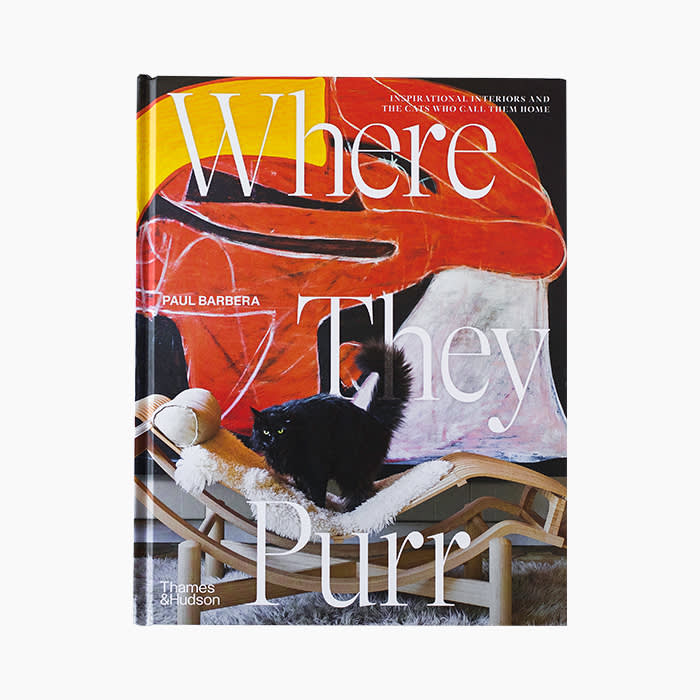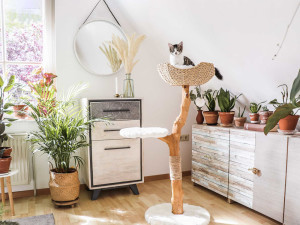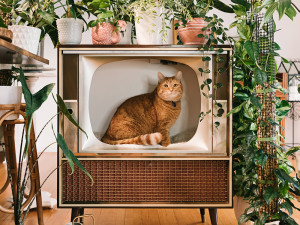Creative Interiors and the Cats Who Call Them Home
Talking to Vogue Living photographer Paul Barbera about his new feline-focused interior design book, Where They Purr.
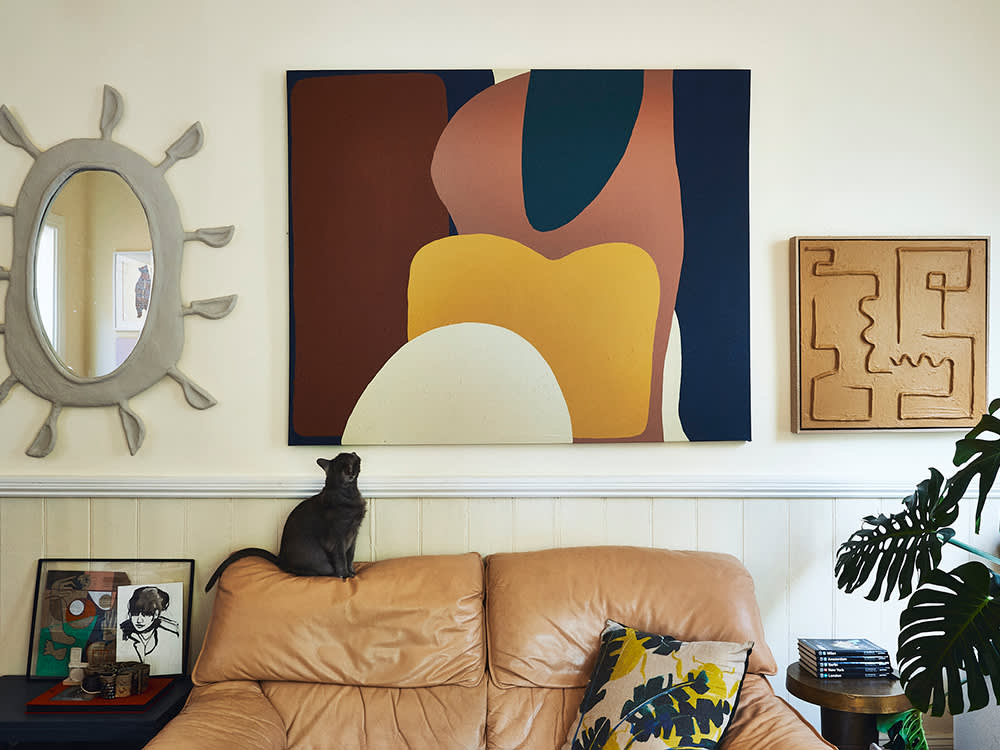
Share Article
Australian, New York-based photographer Paul Barberaopens in new tab didn’t set out to create a book about cats. Not initially. Primarily known for his interior and lifestyle photography, Barbera has collaborated with everyone from Vogue Living to Hermes to SZA, but cats have long danced around the margins of his work. “I’d be out shooting a house for a client in the Hamptons or wherever, and I’d see these cute cats and just snap them.” he says.
For years, he’s been working on a project called Where They Createopens in new tab — photographing artists, designers, and architects in their studios — and initially considered the cat photos as an informal offshoot of that. “I thought, ‘Maybe this could be a little side project called Where They Purropens in new tab,’ but I wasn’t really sure what I was going to do with the photos. I put them on Instagram, but that was it.”

Save on the litter with color-changing tech that helps you better care for your cat.
Then the pandemic hit, and while Barbera and his wife, Queen Chan, hunkered down at his mother’s house in Melbourne, Australia, an opportunity to develop the project finally presented itself. “A friend of mine is an editor at Thames & Hudson and we’d been wanting to work together for a long time,” he says. “She sent me a list of books and said, ‘Paul, these are books we're having a lot of success with. Get some inspiration and come back with a proposal.’” One of the books was Resident Dog by Nicole England, a coffee table book featuring dogs in lavish and beautifully decorated homes. The book reminded Barbera of his work on Where They Purr, so with the help of his wife — she’s the writer in the family — he put together a pitch deck and a week later, they had a book deal.
Rather than cobble the book together from pictures already in his collection, Barbera decided to start fresh and used his extensive design connections to mine the intersection of cat fanciers and modern design enthusiasts to find his subjects. “I’ve always photographed interiors, so I went through a lot of the design firms I know, just ringing them on the phone,” he says, “but my brother [Daniel Barbera] is also a well-known Australian furniture designer and he introduced me to a lot of the people in his rolodex. His work is beautiful and probably in half the homes I photographed for the book.”
How much do you spend on your pet per year?

Unfortunately, no sooner did Barbera start shooting than he hit a roadblock. A gorgeous Russian Blue roadblock named Diego. “It was at the first house I shot for the book,” he says. “The owners were friends of mine, so I wanted to start with them, but [their cat] Diego wanted nothing to do with me.“ After hours of trying unsuccessfully to get close to the introverted Diego, Barbera was ready to give up — not just on the shoot, but on the entire book. “To do it the way I wanted, I needed a portrait of every cat and I just thought, ‘This is not going to work.’”
Disappointed, but still grateful, Barbera offered his friends a family portrait as a thank you for trying to accommodate him. “I set them up and started taking the pictures and, of course, that was when Diego finally wanted in on the action. He appeared right behind me, on the edge of the stairwell, and I finally got the shot.”
“Cats always do the opposite of what you want,” says Barbera, but that’s part of what he loves about them. “They’re kind of magical, in a way. How they run their own show and aren’t subservient to humans. It’s like being in a romantic relationship with a human — there’s all this love and affection and devotion, but they’re also a little bit elusive, which keeps you interested.”
Distressing as his first shoot was, it taught Barbera a valuable lesson: never take the camera off until after you leave the house. “That’s always when the cat comes over,” he says, “when you’ve technically stopped the shoot and everyone is relaxed. There’s a shift in energy and the cats can feel it and that’s when things happen.”
Working with such capricious subjects requires a mix of patience, adaptability, and preparedness. To make sure he gets the shots he needs, Barbera often works with three cameras: “I’ll have one camera on tripod — like I would normally use to shoot an interior for a magazine or a designer — and two other cameras ready to go in case I needed to chase the cat(s) down,” he says. He also uses a super-fast camera designed for shooting athletes at the Olympics. “It takes 30 frames per second and, honestly, there’s no way to shoot cats without it.”
Although he uses the homeowners as cat wranglers, he rarely brings on any additional assistants. “When I’m doing advertising work, I might have five or six assistants, but for this, it was just me,” he says. “Sometimes the interior designer will send an assistant to help style the house, but my priority is always to be as minimally invasive as possible.” Cats can be easily spooked, so it’s important to keep things mellow and not introduce too many foreign elements. “For the first half hour, I try not to do anything. I just let the cat get used to me and my camera. You have to maintain a very low energy. Even when you’re chasing a cat down, you can’t lose your cool. Cat’s can feel that and they’ll respond to it, so you have to sort of act like you don’t care.”
Of course, every cat is different and some are harder to work with than others. “When I was shooting Reuben, the owner left us alone and was just like, ‘You’ll be fine!’ She had this three-story townhouse and I needed to do shots on the top floor, where the bedroom was, so I picked Reuben up and tried to carry him up the stairs. But he weighed like 25 pounds and I had just been attacked by another cat two days earlier, so I was trying to hold him away from my face and he kept almost slipping through my fingers. It was like carrying a sack of potatoes!” says Barbera.
It was all worth it, though, as the book was released earlier this year and has been such a big success that Barbera is currently working on a sequel. This time around, he’s focusing on American homes and the cats that live in them. “So far, everyone has been so excited to be involved and we’ve got access to homes that no one has ever shot before,” he says. Most of the human participants are anonymous, as with the first book, but Barbera’s working on securing access to a handful of celebrity homes as well. “America is so celebrity-conscious that I’d love to feature a few celebrity pets, if I could.”
The book should be out by the end of 2023 and after that, who knows? “If I could, I’d do a new book every year,” says Barbera. “I just love it. I love the process and the people (and cats) I get to meet and it’s just so nice to work on this bigger project.”

Charles Manning
Charles Manning is an actor and writer based in New York City. In his free time he likes to cook, go swimming at the public pool, volunteer at the LGBTQ senior center, and foster senior and special-needs cats. His work has previously appeared in Cosmopolitan, Elle, Marie Claire, Harper’s Bazaar, Seventeen, and Nylon.
Related articles
![Gray and white cat sitting in a cat tree inside a sunny bedroom filled with houseplants]()
Mau Designs Fierce Furniture For Cats Who Are Wild at Heart
Sustainable home decor for “tree cats,” “bush cats” and every little lion in between.
![cat in a follow tv]()
16 Pieces of Furniture So Stylish You Would Never Know They’re for Cats
Mid-century modern coffee table or litter box? Industrial bookcase or cat tower? If you can’t tell, that’s kind of the point.
![dogs sunbathing on top of 30 Rock Plaza]()
What’s More New York Than Hot Dogs?
Photographer Gray Malin captures summer in the city — how NYC dogs see it.
![the olympia le-tan pink clutch next to a cup of coffee]()
Olympia Le-Tan’s Clutch Is a Splurge-Worthy Gift For the Cat-Loving Literati
The designer’s customizable “Love Cats” clutch is limited edition so act meow.
